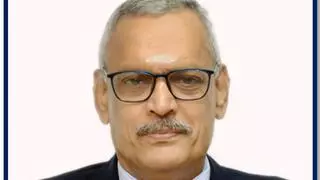MBAs have an edge over chartered accountants (CAs) in India Inc’s CEO club as companies go global, requiring skills beyond financial management.
While the chartered accountant (CA) certification was earlier considered a robust qualification for the CEO’s post, the number of CAs at the top in Nifty 100 companies has decreased from 18 to 11 in the last four years.
During the same period, MBAs strengthened their hold over corner offices, up from 28 in 2013 to 45 now, according to the Prime Database Group.
Some of the best-known CEOs and managing directors in India are CAs, including bankers Naina Lal Kidwai, Deepak Parekh, Keki Mistry, Aditya Puri, industrialist Kumar Mangalam Birla, George Alexander Muthoot of the Muthoot Group, Rakesh Jhunjhunwala and TV Mohandas Pai. But there is a transformation now as the numbers show.
Changing roleThe change is a reflection of the dynamics around a CEO’s role. “Broadly, when we identify the attributes of current CEOs vis-a-vis those 20 years ago, we see that some of the things that have crept in are temperament and dealing with uncertainties more than ever. The ability to course correct and be agile is far more important now,” says Sachin Rajan, MD and country head at Russell Reynolds Associates, a global search and leadership advisory firm.
“While it would be judgmental to say that a classic CA course does not do that, the fact is that a CA is geared to ‘keep it safe’ and be very data-oriented. However, when the goal post is continuously moving, an agile mindset becomes more important,” he adds.
R Suresh, an independent consultant to large companies, agrees that today businesses have to be driven by a well thought-through global business strategy and be supported by strong functional and business leadership. “You need a mindset which understands the business externally very well – markets, economy, banking and talent. An MBA adapts better while finance tends to be internal. So a traditional CA is an internally cooked dish. To drive a larger agenda, more than the knowledge of finance is required,” he says.
B-schoolsPranav Haldea, Managing Director at Prime Database, says the rising number of MBAs in Nifty 100 companies indicates increasing professionalisation of a CEO’s role as promoters and founders let go of control.
“Moreover, on an overall basis, there has been a steep rise in the number of institutions offering MBA courses, as well as students opting for the course in the last three decades. That also explains the surge,” he says.
Suresh says CAs were in demand when industrial companies had to run a tight ship and markets and economy were a given. “Today, nobody hires a CA for the CEO’s role. Whoever has reached there is because of other abilities and skills while CA degree is incidental. In contrast, an MBA degree confers better business leadership skills,” he adds.
Russell’s Rajan points out that according to a study by his firm, CFOs who become CEOs were people who took up roles outside of their comfort zones. “Whether it is strategy or motivating large teams, those roles were taken up to make the transition to CEO. Some added more educational qualification like an MBA to transition to the role,” he says.
Moreover, as businesses become more tech-enabled, the role of transparency, auditing and monitoring the movement of finance is becoming automated. Given the need for agility and strategic thinking versus the “need to keep it safe” in relative terms, CAs do need to add additional qualifications to their portfolio to stay relevant and reach the top.







Comments
Comments have to be in English, and in full sentences. They cannot be abusive or personal. Please abide by our community guidelines for posting your comments.
We have migrated to a new commenting platform. If you are already a registered user of TheHindu Businessline and logged in, you may continue to engage with our articles. If you do not have an account please register and login to post comments. Users can access their older comments by logging into their accounts on Vuukle.